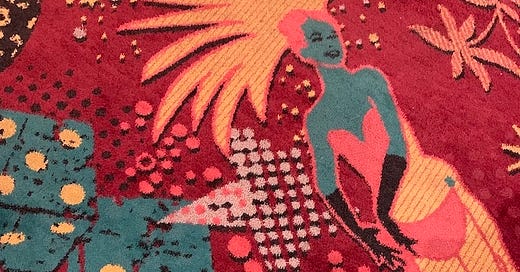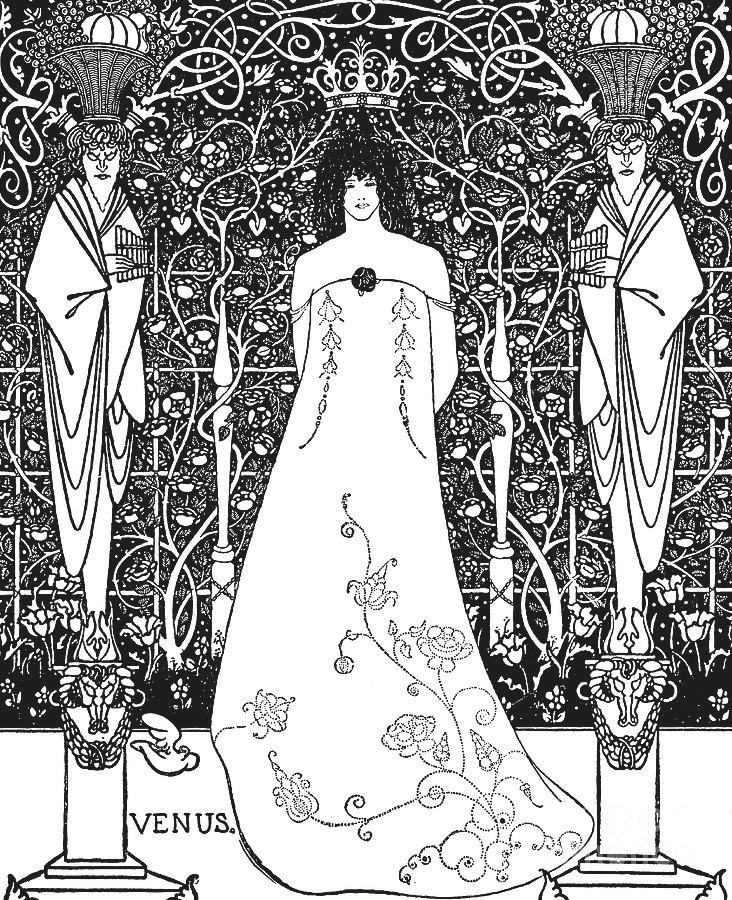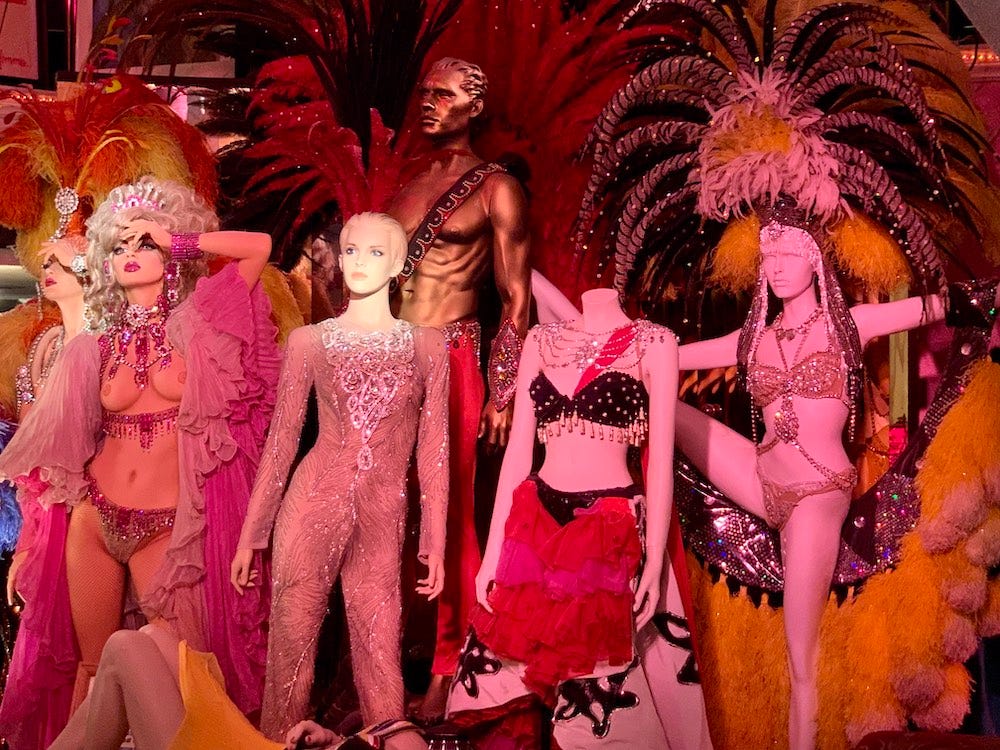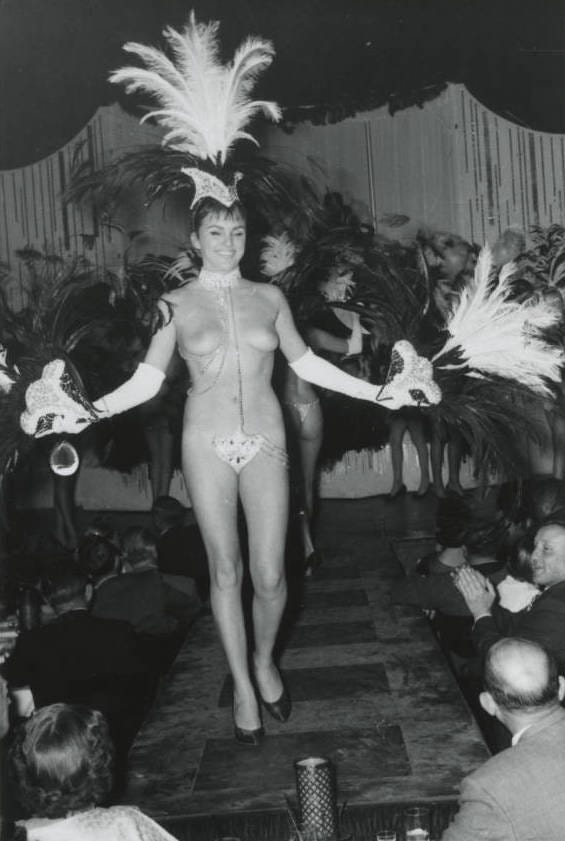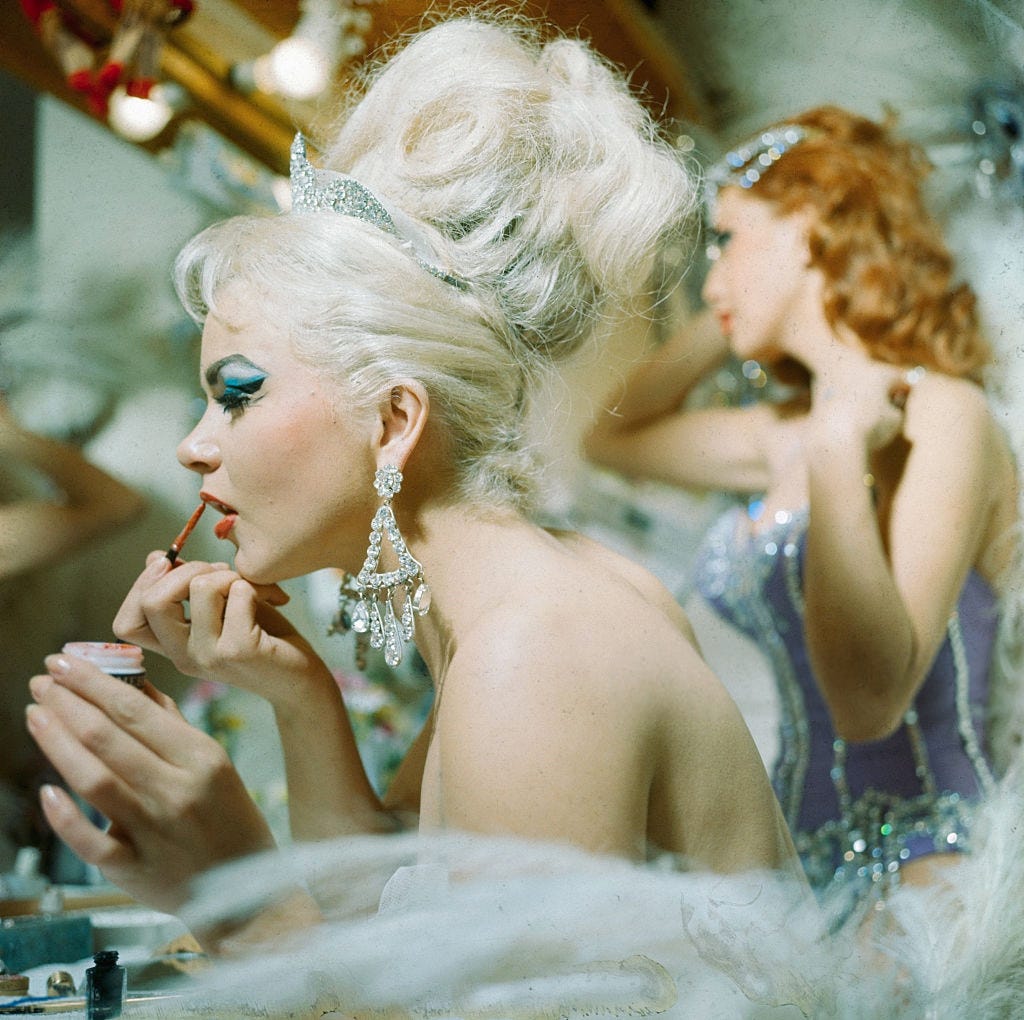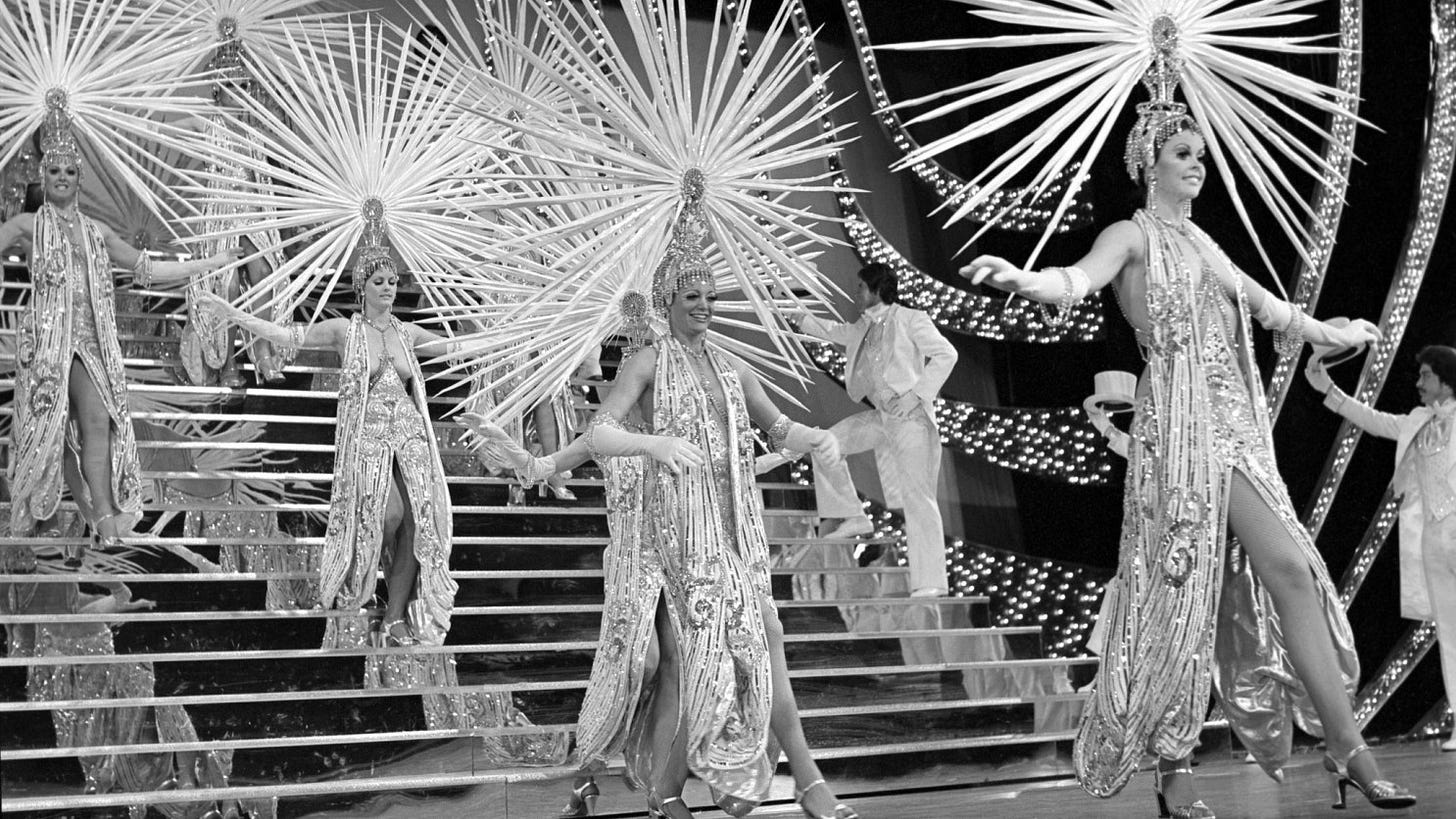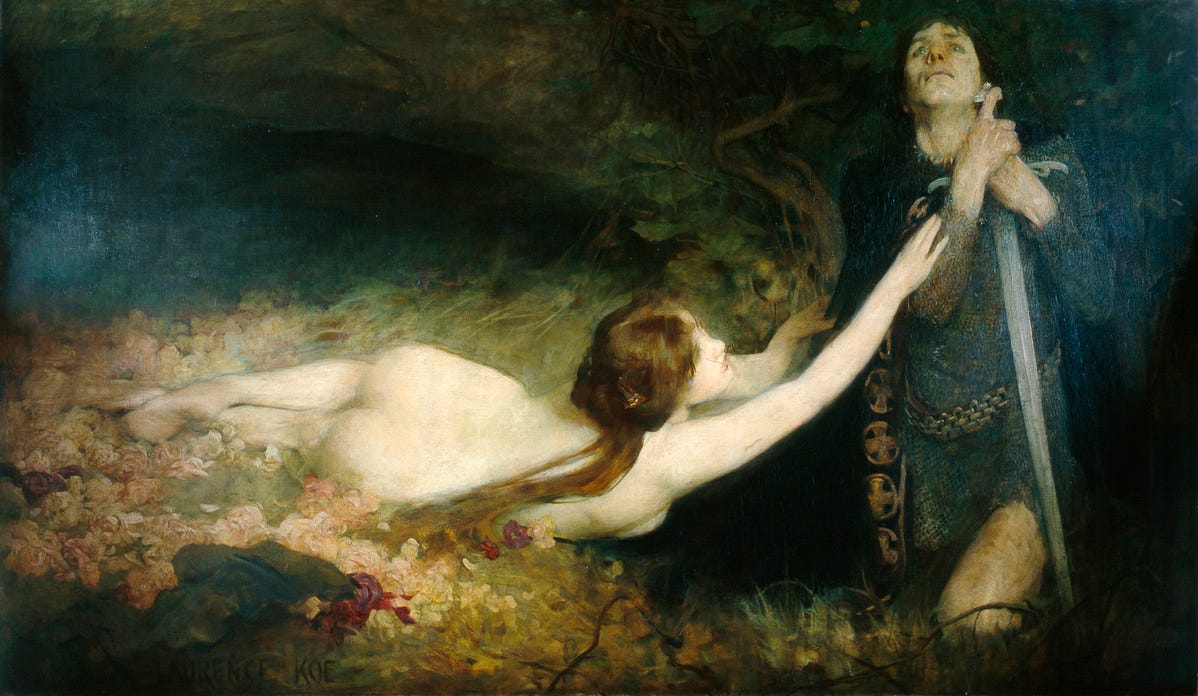The Mont de Vénus Hotel & Casino
“Las Vegas is the most extreme and allegorical of American settlements, bizarre and beautiful in its venality and in its devotion to immediate gratification, a place the tone of which is set by mobsters and call girls and ladies’ room attendants with amyl nitrite poppers in their uniform pockets. Almost everyone notes that there is no ‘time’ in Las Vegas, no night and no day and no past and no future . . . neither is there any logical sense of where one is.”
—Joan Didion
“How time hath passed since hither first I came
I cannot measure. Days and months for me
Are nothing, since no more I see the sun,
No more at night the friendly stars of heaven.
I see no more renewed the tender green
That brings the summer back. The nightingale
No more I hear, spring’s advent heralding—
And must I hear them, see them, ne’er again?”
—Tannhäuser, Act I, trans. T.W. Rolleston
In my early twenties, after a few years of being much too moral, too literate and too sensitive to appreciate the things I was exposed to growing up, I visited a casino for the first time in several years. I remember being totally overwhelmed by the familiar sensations — the blinking lights, the constant clinking of slot machines, the smell of stale cigarettes and stained carpets — people wandering everywhere in an endless circuit, both curious and suspicious of the fortunes of everyone else.
I had spent a lot of time in casinos as a kid (maybe even in the womb), especially in Las Vegas, and had often pulled the lever on slot machines for my parents, sitting in their laps and watching the reels spin. This wasn’t strictly legal, but no one seemed to care much at the time. My parents took me regularly to Vegas, but also to Reno, Atlantic City, and other places, in those days at least once or twice a year.
So when I went back to a casino as a young adult, my first renewed impression was of how at home I felt, at how much I was visiting a place that had this deep settled groove in my subconscious mind, always there even when I had forgotten about it. I imagine some people have this same feeling when visiting their hometowns, old schools, places of work. None of that has ever made as much of a mark on me as the casino.
I’ve followed up this realization with trips as a gambler or a visitor to many casinos, high-end and low-end, modern and vintage, from Vegas to the Poconos, from San Juan to Cleveland. But I’ve returned to Las Vegas most of all. Vegas remains the psychogeography that most affects me, the libidinal ideal of a casino city. Like Joan Didion says, it is for me the most “allegorical of American settlements.”
I began to realize that the Vegas casino floor is the default place in my mental architecture, my mind-palace. It’s the location of numerous dreams of esoteric significance and a surefire way for me to recognize the movements of my True Will in my subconscious, to know my Holy Guardian Angel is trying to establish a connecting link.
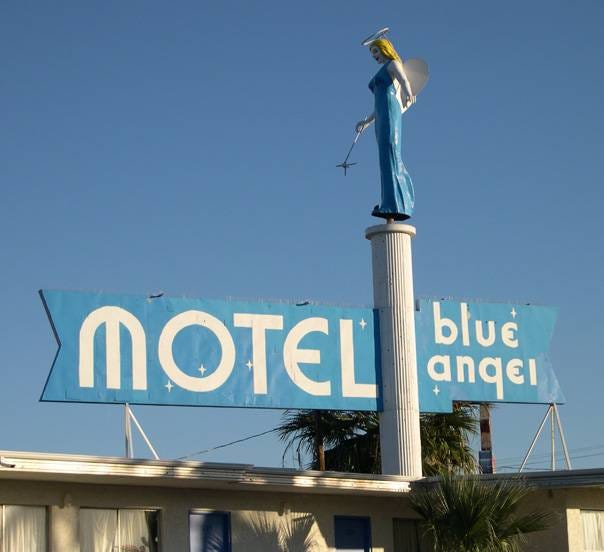
At that time in my early twenties, I would have rather read late Victorian poetry than watch a Scorsese movie, but I didn’t realize my gravitation toward excess, artificiality, and debauchery as themes had already been established in childhood. I didn’t really need 19th century London to be a decadent; I already had 20th century Las Vegas.
One of the most popular tropes that the 19th century aesthetes and decadents returned to again and again, in poetry, painting, and pornography, was the medieval legend of Tannhäuser. In the legend, the knight and minnesinger Tannhäuser stumbles upon the goddess Venus’ subterranean home, the Venusberg, where she retreated after the victory of Christianity over Paganism. The Venusberg itself has played an important role in European folklore surrounding fairyland, witchcraft, and the Wild Hunt.
The Tannhäuser legend experienced a major revival in the 19th century after Wagner included it in his famous opera. Algernon Charles Swinburne wrote the poem “Laus Veneris” about it and Edward Burne-Jones painted it. Aubrey Beardsley wrote the unfinished erotic novel Under the Hill about it and illustrated it with his indelible black and white images. Aleister Crowley wrote a closet drama about it and put it on the student curriculum for the A∴A∴. Oscar Wilde wrote about Dorian Gray attending (and becoming obsessed with) a performance of the opera.
The legend of Tannhäuser is about the drama of a soul torn between Paganism and Christianity — about temptation, pleasure, sin, and forgiveness. But it wasn’t until this summer on a trip to Las Vegas that I learnt that the story of Venus and Tannhäuser seems to have played out in real life, too.
This summer my wife and I visited the Las Vegas Showgirl Museum, an amazing collection of showgirl memorabilia and showbiz ephemera on display in a private mansion in the Paradise Palms neighborhood. Although they are a classic symbol of the city, there are no longer any traditional showgirl revues left in Las Vegas (I saw the last one standing, Jubilee! at Bally’s, in 2015; it closed for good in 2016), and the history of the showgirl is danger of disappearing. The Museum is one of the last bastions of vintage Vegas glamour in the sprawling modern city.
While at the Museum I noticed that some of the items in the collection were from a revue called Paradis Vegas at an old Vegas hotel I had never heard of, the Mont de Vénus Hotel & Casino. This place was founded in the 1950s in Vegas’ golden age, but finally went bankrupt and was imploded in 1987, which also happened to be the year of my birth.
Paradis Vegas was a classic show, one of the big showgirl revues whose style was imported from Paris in the mid-twentieth century. In the show, topless showgirls bedecked in Swarovski crystals (enough to cause a worldwide shortage in 1981) paraded around the stage as the performers acted out scenes from myth and legend.
But it was the story of the lead showgirl in the early 80s, whose name was only given to me as Rose, and her romance with a pastor-in-training that struck me as echoing the Tannhäuser myth. I myself heard the story from a local, an eccentric older lady who works in the cash cage at a nearby casino, while hanging out at a bar we went to after visiting the Museum. I guess she decided to tell us the story upon learning we had both been seminary grads; or maybe it was my excitement about the items in the museum’s collection from the Mont de Vénus. In any case, the story went like this.
The Mont de Vénus had started as one of the most decadent and infamous hotel casinos in Las Vegas, in its midcentury heyday. Like many classic properties in the city, its funding originally came from the Mob. In the 1950s Louis Prima supposedly wrote some jokes for his famous lounge act on a napkin while sitting at a slot machine in the casino; the Rat Pack frequented its lobby bar after their nightly shows in the early 60s. Howard Hughes hated the place because its neon sign out front (depicting Venus rising from the sea foam in a twinkling Cadillac made out of a pink seashell) gave him anxiety; he supposedly tried to buy the place in the late 1960s, but the owners amazingly refused to sell. Paradis Vegas started in 1958 and was one of the most luxurious showgirl revues in the city.
But by the early 1980s, the hotel had started to deteriorate, and a number of re-modelings and attempts at rebranding had failed to bring in new revenue. By this time the place was known more as a budget hotel and a bit of a dive, mostly drawing in a nighttime crowd of questionable occupation and frequently the subject of late-night 911 calls for a random stabbing, another overdose or somebody jumping from the hotel tower they had built as the place’s last great hope in 1978. (In the hours before one unfortunate man had jumped to his death, he had complained at the front desk that he much preferred the vintage rooms above the casino floor, but they were sold out en masse for a convention of air conditioner salesmen at the time. In his suicide note on Mont de Vénus stationary, the man wrote, “It’s either me or this hotel room.”)
The only thing left of note at the Mont de Vénus by then was the Paradis. It was still a success, still filling the seats night after night, even though the costumes were a little dingier and the Swarovski shone a little less brightly. At that time, Rose was the lead showgirl; a beautiful statuesque blonde who bore more than a passing resemblance to the Venus on the vintage sign out front. This was helpful, because she played the goddess herself in the show.
One day in late afternoon, as the sun started to coat the sky with the particular pinks and oranges that only appear in the American Southwest, a man was walking aimlessly down the Vegas strip because he didn’t know what else to do. He was on a three-hour layover in Vegas that had turned into a night in Vegas, as storms in the east had delayed his flight home from a conference he had attended in California.
It had been a Bible conference. The man was a pastor-in-training of a large evangelical Christian church back in Oklahoma. It was a Bible-believing church, and in the course of the conference he had obtained around ten samples of new Bible editions, all for different populations who might need them, all with special devotional features for each group. There was the teen girl study Bible (sparkling pink cover), teen boy study Bible (military camo), a Bible relating the scriptural text to lessons for small business entrepreneurs (“Jesus as a CEO”), and an “urban” Bible. He was pretty sure that last one was not directed at him, even though he was from a city himself — Tulsa, Oklahoma.
Because of the flight delay, the airline had put him up in a Best Western adjacent to the Vegas Strip; with nothing else to do, he figured he should at least see the sights of the city. This was something he had been warned against. He had called his senior pastor after getting to the hotel and though the pastor had been sympathetic to his travel woes, he also told the young man that he should avoid spending too much time out and about in Vegas — it was, after all, a modern Babylon.
Walking the Strip, he could see why. The neon lights were coming on as the sun started to go down. Every few feet, he would be given a flyer from someone standing on the street that usually had an image of naked woman with big blonde hair, and an offer to have her come to his room. Worse, every few feet after that he would be given a flyer with a picture of a shirtless man on it. He dropped these immediately.
Eventually, however — after passing by the Algiers Hotel & Casino, the Silver Mustang Casino, and the Fan-Tan Hotel — he stopped in front of the Mont de Vénus. Something about its neon sign seemed to draw him nearer, compared to the others on the strip. The image on the sign flashed out at him. He remembered that his grandpa had actually driven a pink Cadillac. He saw the words beneath the sign: “ON STAGE — ‘PARADIS VENUS’ — GREAT ACTS! — GORGEOUS GIRLS!”
As he stared upwards, a man elbowed him gently, handing him a flyer. This one also had the image of a scantily clad blonde woman on it, but it was an advertisement for the revue and its featured showgirl. Something about her drew him in, irresistibly.
He got discount tickets to the show and saw it that evening. He really didn’t register what happened in the show — everything was, for him, just a blurry and glowing soft lens, a Penthouse filter, around the main attraction: the showgirl from the flyer. As she walked down the stairs while balancing a giant and glittering headdress of Swarovski crystals, he gazed at her and felt like he did when talking about the Song of Solomon in one of his Bible study groups. “You are altogether beautiful, my darling; there is no flaw in you.”
After the show, the young man sat at the hotel bar just off the casino. He nursed a beer while thinking about the showgirl. She did remind him of Venus, he thought. If he had met the real Venus he wouldn’t have been able to tell them apart. Or maybe she was more like the figure in Revelation 17 . . .
Suddenly there was a tap on his shoulder. He turned his head — it was her! Rose from the Paradis Vegas smiled gracefully at him. “Is this seat taken?” She looked quieter and less audacious outside of the show. Her hair was in a messy ponytail. But somehow what had drawn him in was still there, even without the crystal.
Of course he let her sit down. I don’t know what they said to each other. He might have asked her how she ended up in a place like that, and she might have told him about coming from a town out east, about making her way to Vegas and doing some things she would rather not think about along the way. She might have said that she loved the old hotel and the show, and wished she had been around for the place’s golden years, and she might have seemed to him both proud and a little sad.
She might have asked him how he had ended up there that night. Maybe then he tried to talk to her about God. I think she laughed, and smiled. But later that night, after spending the whole evening with her in the casino, he went upstairs with her to her suite in the Mont de Vénus, shared with a few of the other girls in the show. He spent the night with her. His theology didn’t stand a chance.
He missed his flight the next morning. His lead pastor tried calling the Best Western, but to no avail. No one heard from the young man again for months. He had moved into the Mont de Vénus. Some stories said he helped Rose out a few times with the mob guys who ran the hotel, and even became a sort of mascot around the casino, because of how earnestly he tried to bring everyone to religion, even in his present circumstances. The born-again Christian guy who was sleeping with the showgirl. Some stories, from more cynical people, said drugs were involved. After all, this was the 1980s. But him and Rose seemed very much in love. He attended her show every night.
I don’t know if any of that is true. I do know that after about a year, the man was moving his suitcase (he still kept his clothes and his things inside it) when the study Bible for small business entrepreneurs fell out. It opened onto Mark 8, and he picked it up and read: “For what does it profit a man to gain the whole world and forfeit his soul?”
He felt taken aback. He had been feeling the stirrings of guilt for some time, but usually they disappeared around the time he saw Paradis Vegas in the evening, and always by the time he met Rose for a drink in the lobby bar. He suddenly missed his old life and responsibilities. He worried about his soul, and its relationship with God.
He told Rose that evening that he was going to leave. She just smiled at him sadly.
The pastor-in-training took a Greyhound back to Oklahoma the next day. He fell asleep during the journey, the study Bible open on his chest. Once he arrived in Tulsa, he went immediately to his old church, a big white auditorium near the suburbs. He went in and up to his lead pastor’s office, a huge and spacious room which had a window overlooking the sanctuary. The pastor looked up at him in shock.
“Where have you been?!”
The pastor-in-training told his mentor everything: about the Mont de Vénus, about the neon sign outside, about the Paradis Vegas. About Rose, and what he had been doing for the past year. Tears welled up in his eyes as he begged for forgiveness — from his pastor, but mostly from his God. He got down on his knees. He wanted his old life back.
The lead pastor’s face was impassive and pale for a moment. Then he stood up and scowled at the younger man.
“There’s no way you’re coming back, after what you pulled. You’re a disgrace. You know how embarrassing it was to the church — how embarrassing it was to me — to have to explain to people that one of our pastors abandoned everything to live like a pagan sinner with some whore in Vegas? We were the laughing stock of the whole regional conference.”
Spittle was forming at the corner of his mouth. “Now you want to be forgiven? See that cross over there?” He pointed to a large wooden cross standing in the center of his office. “GOD BLESS AMERICA” was inscribed on the base in big letters. “You’re as likely to be forgiven here as that dead hunk of wood is to bloom with flowers. Now get the hell out of here.”
There was nothing to be said after that. In disgrace, the pastor-in-training left the church.
What happens next depends on the version of the story. I was told that, after hitchhiking through the Southwest for a while, the young man decided to return to the showgirl in the casino, for if he couldn’t be a Christian pastor anymore, he would live out the rest of his life with the woman he loved. Even if it meant he was a pagan sinner.
No one knows where the pair of them went after the Mont de Vénus Hotel & Casino and the Paradis Vegas finally shut down in the late 80s, amidst the drive to make Las Vegas a more family-friendly place. It reminds me a little of the final scene of the movie Casino, where all the classic casinos are imploded to make way for an influx of kiddy-themed hotels, corporate junk bond funding and tourists from the Midwest. Like mobster Frank Cullotta says in the book the movie is based on, “It should have been so sweet . . . We were given paradise on earth, but we fucked it all up.”
All anybody knows for sure is that, three days after the young man’s departure from the church, the wooden cross in the pastor’s office bloomed with roses.

